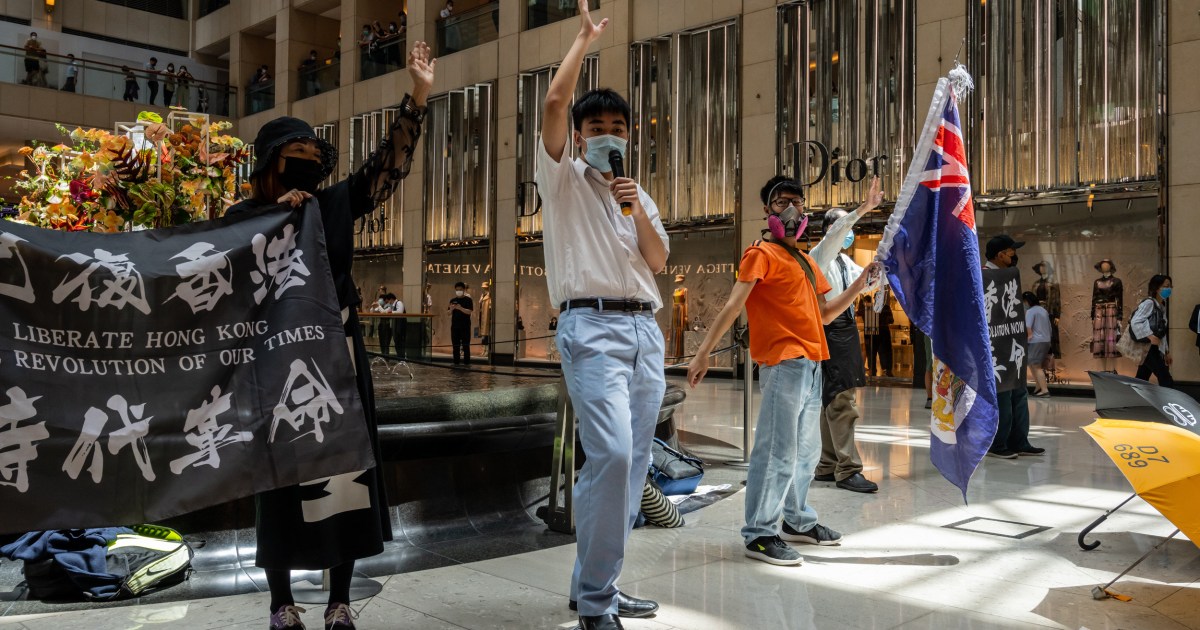China called on the United States to back down from its decision to impose restrictions on Chinese officials due to the Hong Kong private national security bill, and US Secretary of State Mike Pompeo said Friday that his country has imposed sanctions on Chinese officials for their role in restricting freedoms in this region, against the backdrop of Beijing’s pursuit To pass a new national security law there.
"We urge the American side to immediately correct its mistakes, withdraw the decision and stop interfering in China's internal affairs," the Chinese embassy in Washington said in a statement posted on Twitter. She added that Beijing "does not allow any external interference in its internal affairs, and will continue to take strong measures to support national sovereignty."
Embassy spokesman Fang Hong said the new legislation targets only "a very limited category of practices that endanger national security."
The Wall Street Journal - The US Senate passed with unanimous approval a bipartisan bill that would impose sanctions on Chinese officials, companies and banks that undermine Hong Kong's independence. Even though only one Senator's opposition would suffice to disrupt it. pic.twitter.com/hkPAZ8zwuE
- Hussein Al-Qamzi (@HussainAlQemzi) June 25, 2020
The United States announced yesterday that restrictions on the granting of visas to a number of Chinese Communist Party officials were due to the National Security Law of Hong Kong, which has autonomy within Chinese sovereignty.
The foreign minister said the decision to impose sanctions on Chinese officials came in fulfillment of President Donald Trump's promise to punish Chinese officials, and noted that the Communist Party had "intensified its efforts to reduce the level of self-government in Hong Kong" and took measures "to undermine Beijing's obligations set out in the Sino-British Joint Declaration issued in 1984 "respecting the self-government of the former British colony.
The Chinese parliament The sanctions come two days before the Chinese parliament begins three-day meetings to pass the Hong Kong National Security Law, which provides for the creation of a new local national security council headed by Chief Executive of Hong Kong "Carry Lam" and under the supervision of the Beijing authorities, and it will be under the authority of Carrie Judges appointed to hear cases related to the National Security Law.
Officials from Hong Kong and China say the new bill should be quickly implemented in the former British colony after protests, some of which were violent, last year showed the need to confront separatist tendencies "and sabotage, terrorism and collusion" with foreign powers.
The law criticized Hong Kong activists and lawyers and Western governments, viewing it as undermining the status of the city that returned to Chinese sovereignty on July 1, 1984 under an agreement between Beijing and London, and requiring Hong Kong to enjoy autonomy under the principle of "one country, two systems".
In a related context, Hong Kong police yesterday banned a march, and opposed another organization that was scheduled for the first of next July to mark the return of the British colony to China, and the police stated that the marches are not exempt from the decision to ban gatherings.

